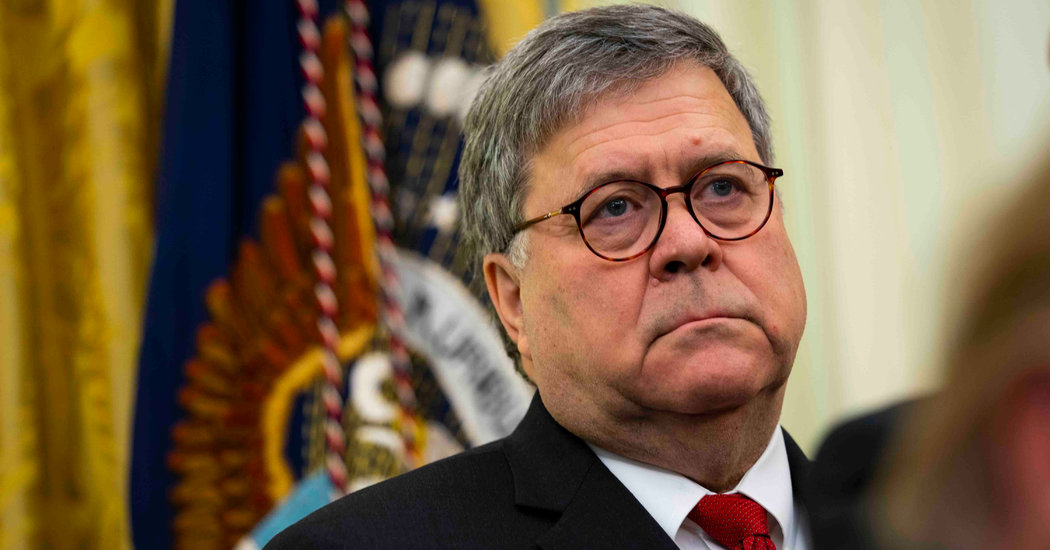
WASHINGTON — Attorney General William P. Barr warned that communities and critics of policing must display more deference or risk losing protection, a stark admonition that underscored the Trump administration’s support for law enforcement amid an ongoing national conversation about police brutality against minorities.
“They have to start showing, more than they do, the respect and support that law enforcement deserves,” Mr. Barr said on Tuesday afternoon in comments at an awards ceremony for policing. “And if communities don’t give that support and respect, they may find themselves without the police protection they need.”
The speech immediately sparked criticisms that Mr. Barr was conflating protests of police misconduct with a disrespect for the police and that he was advocating lawlessness as a potential reprisal.
“The idea that the attorney general of the United States, the nation’s chief law enforcement officer, is recommending abandoning communities as retribution for pushing for police reform or criticizing policing practices, is profoundly dangerous and irresponsible,” said Vanita Gupta, the president and chief executive of the Leadership Conference on Civil and Human Rights and the former head of the Justice Department’s civil rights division.
Mr. Barr’s stance amounted to a call to support police officers even when they abuse their power, another critic said. Mr. Barr “fails to understand police are not a protection racket,” Andrew Stroehlein of Human Rights Watch said on Twitter.
At the ceremony, Mr. Barr likened criticisms of the police to the abuse that Vietnam War veterans — many of whom were drafted and had to fight — endured when they returned home. Those troops sometimes “bore the brunt of people who were opposed to the war,” Mr. Barr said.
“The respect and gratitude owed them was not given,” he said. “It took decades for the American people to finally realize that.”
Mr. Barr lauded police officers for their “special kind of bravery” and noted that beyond protecting communities and fighting crime, they often do the work of mental health professionals and drug addiction specialists.
He lamented that police officers did not receive the kind of cheers and support that the public had afforded returning war veterans. “When officers roll out of their precincts, no crowds cheer them on,” he said. “When you go home at the end of every day, there is no ticker-tape parade.”
Mr. Barr also echoed President Trump’s attacks on critics of police abuse and the use of deadly force. Mr. Trump has said that the N.F.L. should “fire or suspend” players who knelt during the national anthem to protest police brutality and that police officers should not be “too nice” while transporting suspects.
Some law enforcement officials denounced the president’s comments as potentially encouraging the inappropriate use of force.
Mr. Barr’s remarks reflected his calls earlier this year for zero tolerance for resisting the police and served as a reminder of his history as an ardent backer of aggressive law enforcement.
During his first stint as attorney general, in the early 1990s during the George Bush administration, Mr. Barr supported tough-on-crime policies that furthered the incarceration of millions of Americans. Under his watch, the Justice Department issued a memo titled “The Case for More Incarceration.”
Mr. Barr has defended his work as partly responsible for an ensuing drop in violent crime. During his confirmation this year, Mr. Barr said that his push for more incarceration was in response to the burgeoning crack epidemic and noted that today’s world may call for a different approach to drug addiction and violent crime.
But Mr. Barr has remained firm in his support of police officers and the need for them to be tough on crime. Earlier this year, he said, “In the final analysis, what stands between chaos and carnage on the one hand, and the civilized and tranquil society we all yearn for, is the thin blue line of law enforcement.”
